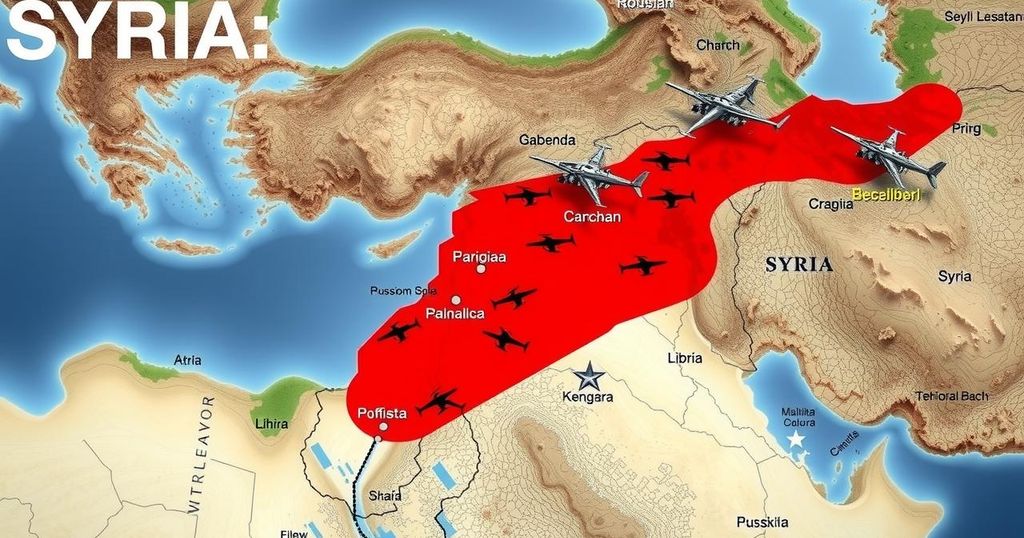Russia’s Military Redeployment: Implications for Libya and Beyond

Analysts are examining the possible redeployment of Russian military forces from Syria to Libya, quantifying the strategic implications of such a move amidst ongoing instability in Libya and the ramifications for NATO. Russia aims to maintain its influence in the Mediterranean, potentially at the expense of further internal conflict in Libya and shifting geopolitical power balances.
Analysts are contemplating the ramifications of Russia potentially redeploying its military from Syria to Libya, following a period of uncertainty regarding its influence in Syria. While the Kremlin’s retention of its strategic footprint in the Mediterranean and Africa is widely accepted, the implications of a strengthened Russian military presence in Libya, especially near NATO borders, remains unsettled. Such moves could significantly impact the existing political landscape of Libya, which is characterized by competing governments and ongoing instability.
Historically, Russia has provided critical military and diplomatic support to the Assad regime in Syria, establishing key military bases that serve as vital links to the Mediterranean. With the apparent loss of control in Syria, analysts express concern regarding the fate of these bases. Consequently, Libya emerges as a plausible alternative for Russia, given its existing presence and ambitions in North Africa. However, the current situation in Libya, marked by a profound power struggle, poses significant challenges to such a military redeployment.
The internal dynamics of Libya are complex, with two rival governments vying for control, each backed by various factions and external powers. This ongoing conflict has hampered efforts to achieve political unity or legitimacy, making the introduction of Russian military influences potentially destabilizing. Furthermore, analysts suggest that enhancing Russia’s military foothold could empower renegade commander Khalifa Haftar, who seeks to assert dominance over the ongoing negotiations for legitimacy within Libya.
Moreover, the potential for Russian influence in Libya could pose significant strategic challenges for Western nations, notably concerning migration routes and trade corridors, thus intensifying geopolitical tensions in the region. As Russia continues to expand its military operations in Africa, the intricate balance of power in Libya could shift, drawing further engagement from Western powers in attempts to curb Russian hegemony.
The article discusses the prospects of Russian military redeployment from Syria to Libya, considering Russia’s established influence in Syria and the potential political ramifications in Libya. The analysis highlights Russia’s strategic interests in maintaining a presence in the Mediterranean and Africa amid a changing geopolitical landscape. It underscores the internal instability in Libya, the ongoing power struggle between rival governments, and the implications of increased Russian military involvement for local and international politics.
In summary, the contemplation of Russian military movement from Syria to Libya reflects a broader strategy to maintain geopolitical influence in the Mediterranean and Africa. The existing power struggles within Libya, coupled with the potential for enhanced Russian presence, could destabilize the region and challenge Western interests. As such, analysts remain vigilant about the evolving dynamics and consequences of these developments for international relations and regional stability.
Original Source: www.aljazeera.com








